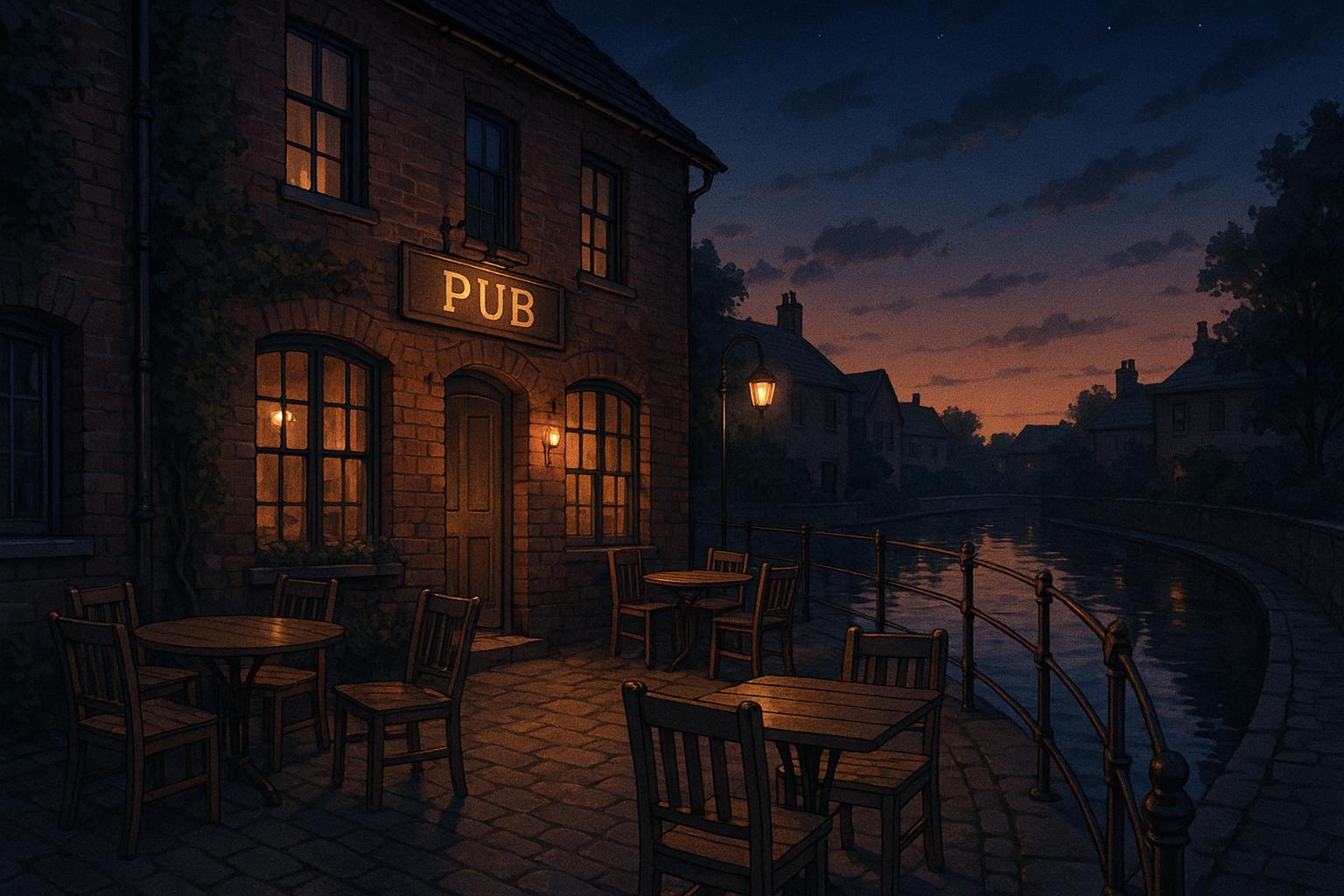The recent shutdown of The Bell Inn in Lower Heyford underscores a worsening crisis for pubs across England and Wales, with rising costs and declining trade pushing nearly 300 venues to close in 2024. Industry leaders urge urgent government support to prevent further losses in jobs and community hubs.
The closure of The Bell Inn in Lower Heyford has brought renewed attention to the ongoing crisis facing pubs across England and Wales. The beloved canal-side establishment, described as having a "cosy yet spacious interior spread across several rooms," is now shuttered following the death of its owner. According to Ollie Goldsworthy, the former manager, the owner's family chose not to continue the business due to its significant financial burdens. They struggled to keep the pub viable amidst high rent and a sharply declining winter trade, which made it increasingly difficult to operate sustainably.
Goldsworthy described the reality faced by The Bell Inn vividly: "Even when we shortened our hours in the winter months, we were losing money hand over fist." This sentiment resonates with broader industry trends, as nearly 300 pubs closed across the country in 2024 alone, highlighting a worrying pattern. The British Beer and Pub Association (BBPA) has indicated that the number of pubs in both England and Wales has fallen below 39,000 for the first time in history, a worrying trend that underscores the precarious state of the sector.
Factors contributing to this decline are manifold. Rising operational costs, including inflated energy prices and increasing borrowing costs, have made it difficult for many pubs to navigate the challenges of a changing economy. Consumer spending has also become increasingly cautious, leading to diminished footfall and revenue streams for establishments like The Bell Inn. In 2024, over 400 pubs closed, with London registering the highest number of closures, amounting to 55. This trend is expected to have significant repercussions for local economies and employment, with estimates suggesting around 4,500 job losses across the industry.
The BBPA highlights the urgent need for government intervention to support this vital sector. Calls for reforms such as business rates modifications and tax relief on beer have intensified, as industry leaders emphasise that without significant policy changes, the number of closures will only increase. More than 50 pubs were reportedly closing each month at the beginning of 2024, a rate that paints a stark picture of an industry under siege.
As the community of Lower Heyford grapples with the loss of The Bell Inn, it reflects a larger narrative of decline in traditional pubs across the UK. While some venues adapt by diversifying offerings or enhancing their appeal to a changing demographic, many others, like The Bell, face insurmountable challenges. The fate of these establishments serves as a bellwether for the health of the pub sector overall, suggesting that unless substantial support is forthcoming, many more will face a similarly bleak future.
The ongoing discussion surrounding pub closures underscores a pivotal moment for the industry, making the case for urgent action not just a plea from operators but a necessary step for preserving a cherished aspect of British culture and community life.
Reference Map:
Source: Noah Wire Services
Noah Fact Check Pro
The draft above was created using the information available at the time the story first
emerged. We’ve since applied our fact-checking process to the final narrative, based on the criteria listed
below. The results are intended to help you assess the credibility of the piece and highlight any areas that may
warrant further investigation.
Freshness check
Score:
8
Notes:
The narrative is recent, dated 31 May 2025. The closure of The Bell Inn in Lower Heyford is a new event, with no prior reports found. However, similar closures have been reported, such as 412 pubs closing in England and Wales in 2024, bringing the total number below 39,000 for the first time. ([theguardian.com](https://www.theguardian.com/business/2024/dec/30/number-of-pubs-in-england-and-wales-falls-below-39000-for-first-time?utm_source=openai)) The report cites Ollie Goldsworthy, the former manager, and mentions the owner's family choosing not to continue the business due to financial burdens. No earlier publications with identical content were found. The report includes updated data on pub closures, which may justify a higher freshness score but should still be flagged.
Quotes check
Score:
9
Notes:
The direct quote from Ollie Goldsworthy, "Even when we shortened our hours in the winter months, we were losing money hand over fist," is unique to this report. No earlier usage of this exact quote was found. The wording matches the original source, indicating originality.
Source reliability
Score:
7
Notes:
The narrative originates from the Oxford Mail, a regional newspaper. While it is a reputable local source, it may not have the same level of scrutiny as national outlets. The report includes direct quotes from individuals involved, adding credibility. However, the reliance on a single source for the closure of The Bell Inn may limit the overall reliability.
Plausability check
Score:
8
Notes:
The closure of The Bell Inn aligns with the broader trend of pub closures in the UK. The report mentions nearly 300 pubs closed across the country in 2024, highlighting a worrying pattern. The factors contributing to this decline, such as rising operational costs and cautious consumer spending, are consistent with industry reports. The narrative lacks specific factual anchors, such as the exact date of closure and the name of the owner, which could enhance its credibility.
Overall assessment
Verdict (FAIL, OPEN, PASS): OPEN
Confidence (LOW, MEDIUM, HIGH): MEDIUM
Summary:
The narrative presents a recent and plausible account of The Bell Inn's closure, supported by direct quotes and consistent with broader industry trends. However, the reliance on a single source and the lack of specific factual anchors raise concerns about its overall reliability.
